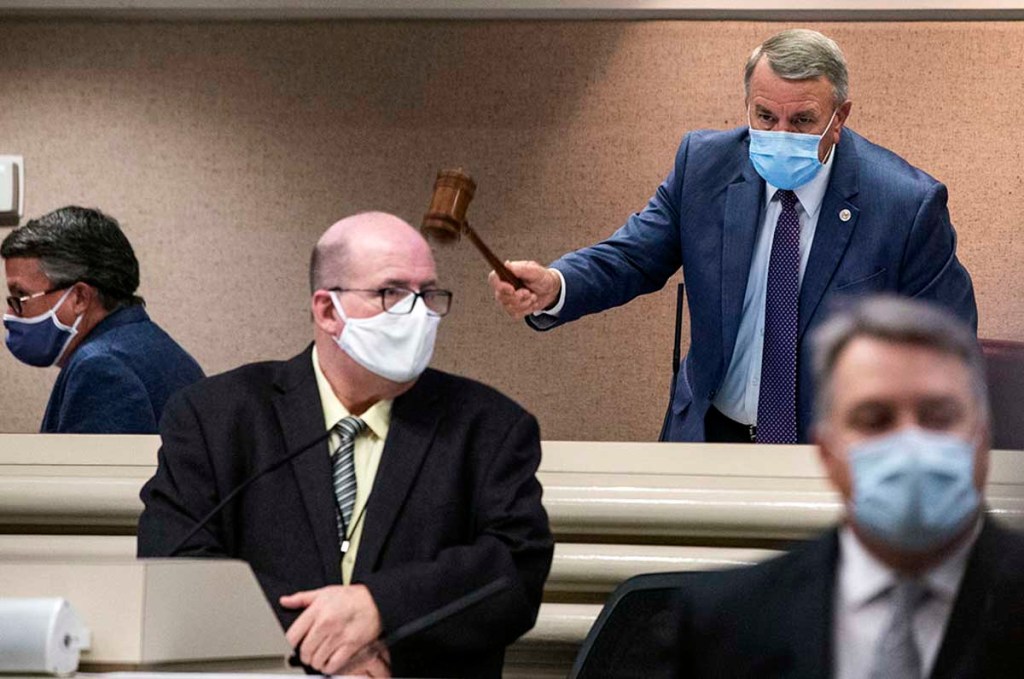Cullman County Commission, sales tax bills head to governor for final approval
Published 9:24 pm Saturday, May 9, 2020

- Alabama Speaker of the House Mac McCutcheon strikes the gavel as the Alabama House of Representatives restarts the session at the State House in Montgomery, Ala., on Monday, May 4, 2020.
Two local bills affecting Cullman County passed both chambers of the Alabama Legislature on Saturday; one a restructured expansion of the Cullman County Commission; the other a sales tax sharing lockout for any county municipalities that may incorporate in the future.
Both bills moved through the Alabama Senate after having cleared the House earlier in the week. The legislature met Saturday to pass a $7.2 billion education budget, after passing a $2.3 billion General Fund budget on Thursday.
Trending
The commission bill changes the makeup of the county commission from its current three-member structure, which is composed of two full-time associate commissioners and a full-time commission chairman. Under the new structure, the commission expands into a five-member body: one full-time commission chairman, along with four part-time associate commissioners who represent four newly-created districts. U.S. Highway 31 and U.S. Highway 278 will serve as the geographic dividing line demarcating the four districts.
The sales tax bill freezes the existing sales tax funding structure already in place for the county’s 12 municipalities, requiring that any municipalities that incorporate as towns in the future find other sources of revenue to fund their public operations.
House Rep. Randall Shedd (R-Fairview), who led the local legislative delegation in getting the five-member commission bill passed, said in a statement Saturday that he’s confident the time is right for more representative leadership in county government.
“Cullman County has outgrown the three member system in terms of population and budgets,” said Shedd. “Over the next ten years, we don’t know who our commissioners will be, therefore this not about a person, it’s about the system.
“What we do know is the county commission will be spending over a half billion dollars of public funds. Under the current system, two people could get together and decide how to spend that money. That’s too much pressure on too few.”
Both bills now head to Gov. Kay Ivey’s desk, and will become law upon her approval.




